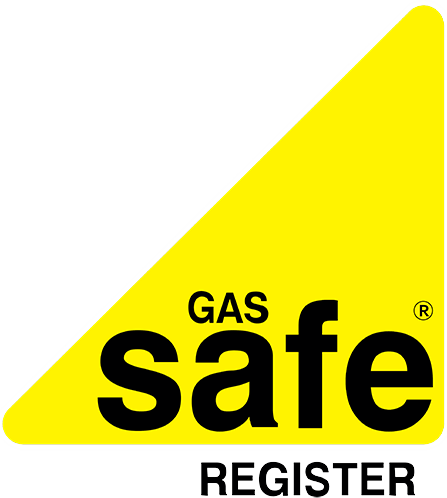We have written this to help you identify common boiler faults and how to fix them, and to highlight the importance of taking care of your boiler which can benefit you in the long run. Boilers can be complex, even the best boilers can let us down from time to time.
In these tough times, many Edinburgh homeowners are being more careful about where they spend their money due to the rising cost of living. From our experience, we’ve noticed an increase in the number of boilers breaking down due to a lack of boiler servicing and maintenance, such as chemical treatment.
Boiler maintenance is important!
Boilers are essential appliances in our homes, especially during the colder months. They keep us warm and comfortable by heating our homes and providing us with hot water. However, like all appliances, boilers can develop problems that need to be addressed.
Not looking after your boiler’s maintenance can lead to breakdowns and costly repairs. Prevention is key, and regular boiler servicing and chemical treatments can help prevent breakdowns and ensure that your boiler is running efficiently.
Anyhoo, onto the topic of boiler issues.
Common boiler problems (and how to fix them)
Despite regular servicing and maintenance, boilers can still develop problems. Here are some of the more common boiler faults and information on how to fix them:
Low Boiler Pressure:
Low boiler pressure is a common issue that can cause your boiler to stop working correctly. Check the pressure gauge and if it’s too low, add water to the system to increase the pressure. For more information on how to fix low boiler pressure, you can read our handy blog post on low boiler pressure and how to fix it.
Noisy Boiler (kettling):
If you notice any unusual noises coming from your boiler in Edinburgh, it may be an indication of a problem. Banging or clanking sounds could be a sign of a faulty heat exchanger, while whistling or gurgling sounds may be caused by trapped air in the system.
There are a few things you can try yourself, such as checking for any visible leaks or bleeding your radiators. However, if the problem persists, it’s important to contact a qualified engineer to properly diagnose and fix the issue.
Boiler Leaking:
A leaking boiler can cause significant damage to your home, so it’s essential to address this problem as soon as possible. The most common cause of leaks is a faulty internal component, such as a pressure valve or pump seal.
In some cases, the leak may be due to corrosion or rust, which will require the affected part to be replaced. We recommend calling a qualified engineer if your boiler is leaking.
Frozen Condensate Pipe:
During the winter months, the condensate pipe that carries condensate water from the boiler to the drain can freeze, causing the boiler to shut down. Thaw the pipe using warm water or a hot water bottle, and make sure the pipe is insulated to prevent future freezing. We’ve written a short guide on how you can fix a frozen condensate pipe yourself.
No Heating or Hot Water:
This is one of the most common boiler problems, and it can be caused by a variety of faults. If you’re experiencing no heating or hot water, there are a few things you can check before calling a qualified engineer.
First, check your thermostat to make sure it’s set to the correct temperature and functioning properly. If the thermostat is working correctly, you should check the pilot light or ignition. Make sure they are both working and try relighting the pilot light if it’s out. If you still have no heating or hot water, it’s best to contact a qualified engineer to diagnose and fix the issue.
Radiator Faults:
If you’re experiencing radiator faults and your radiators aren’t heating up properly, there are a few things you can check yourself before calling a qualified engineer. Firstly, make sure that all radiator valves are open and that the system is fully pressurised.
If the problem persists, try bleeding your radiators to release any trapped air. This is often a simple solution that can solve the problem. If after bleeding your radiators, the issue still persists, it could be a sign of a problem with your boiler.
A build-up of sludge and debris can also prevent heat from circulating properly, in which case, contacting a qualified engineer to investigate the issue would be recommended.
Boiler Not Responding to the Thermostat:
If your boiler is not responding to the thermostat, there are a few basic checks that you can perform before calling a qualified engineer. Firstly, check that your thermostat is set to the correct temperature and that it is switched on. You should also make sure that your boiler is switched on and that there are no error messages displayed on the control panel.
If everything appears to be in order, it could be due to a faulty thermostat or a problem with the boiler’s wiring. In some cases, the issue may be with the diverter valve, which is responsible for directing the flow of hot water to either your heating or hot water system. It’s recommended to call a qualified engineer to diagnose and fix the problem.
Heating is working, but hot water is not:
If your heating is working, but your hot water isn’t, there could be a few potential causes. First, check that the hot water settings on your boiler or thermostat are turned on and set to the desired temperature. You should also check that the hot water isolation valve (usually located near the hot water tank) is turned on.
If these basic checks don’t reveal the issue, it could be due to a blockage in the hot water pipes or a problem with the hot water flow sensor. In these cases, it’s best to call a qualified engineer to diagnose and fix the problem.
Boiler Not Heating Hot Water properly:
If your hot water isn’t heating up as it should, there are a few things you can check before calling a qualified engineer. First, make sure that the thermostat on your boiler is set to the correct temperature. If the thermostat is set too low, it may not be heating the water up enough. Next, check the settings on your hot water cylinder.
If the cylinder thermostat is set too low, it could be preventing the water from heating up properly. If neither of these checks solves the problem, it’s best to call a qualified engineer. They can diagnose and fix the issue, which may involve replacing the faulty component such as the heating element or thermostat.
The benefits of investing in your boiler
We understand that homeowners are looking for ways to save money, and investing in your boiler’s maintenance may not seem like a priority. However, taking care of your boiler can lead to long-term savings on your energy bills. A well-maintained boiler runs more efficiently, which means it uses less energy to heat your home and provide hot water. This, in turn, can help lower your fuel bills over time.
If you’re unsure how to maintain your boiler or have concerns about its performance, our team of experienced engineers in Edinburgh makes Celsius the perfect Boiler Company to keep things flowing as they should do.
If your boiler isn’t working then here is a link to book a boiler repair.
We also offer arange of new boilers and boiler servicing to help keep your boiler in tip-top condition.
Contact us today to find out how we can help you.

 0% finance available
0% finance available  Up to 12 years aftercare
Up to 12 years aftercare  Edinburgh Trusted Trader
Edinburgh Trusted Trader  No finance deposit required
No finance deposit required 












